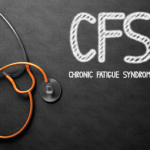LONDON (Reuters)—Scientists in the U.S. say they have taken a step toward developing a possible diagnostic test for chronic fatigue syndrome, a condition characterized by exhaustion and other debilitating symptoms.
Researchers at Stanford University School of Medicine say a pilot study of 40 people, half of whom were healthy and half of whom had the syndrome, showed their potential biomarker test correctly identified those who were ill.
Chronic fatigue syndrome (CFS), also known as myalgic encephalomyelitis or ME, is estimated to affect some 2.5 million people in the U.S. and as many as 17 million worldwide.
Symptoms include overwhelming fatigue, joint pain, headaches and sleep problems. No cause or diagnosis has yet been established and the condition can render patients bed- or house-bound for years.
The research, published in the journal Proceedings of the National Academy of Sciences, analyzed blood samples from trial volunteers using a nanoelectronic assay—a test that measures changes in tiny amounts of energy as a proxy for the health of immune cells and blood plasma.1
The scientists stressed the blood samples using salt and then compared the responses. The results, they say, showed that all the CFS patients’ blood samples creating a clear spike, while those from healthy controls remained relatively stable.
“We don’t know exactly why the cells and plasma are acting this way, or even what they’re doing,” says Ron Davis, a professor of biochemistry and of genetics who co-led the study. “[But] we clearly see a difference in the way healthy and chronic fatigue syndrome immune cells process stress.”
Other experts not directly involved in this work cautioned, however, that its findings showed there is still a long way to go before a biomarker is found that can establish CFS diagnosis and distinguish it from other conditions with similar symptoms.
Simon Wessely, chair of psychiatry at King’s College London’s Institute of Psychiatry Psychology & Neuroscience, who has worked with CFS patients for many years, says the study was the latest of many attempts to find a biomarker for CFS, but had not been able to solve two key issues:
“The [first] issue is: Can any biomarker distinguish CFS patients from those with other fatiguing illnesses? And second, is it measuring the cause, and not the consequence, of illness?” he says in an emailed comment. “This study does not provide any evidence that either has finally been achieved.”
Reference
- Esfandyarpour R, Kashi A, Nemat-Gorgani M, et al. A nanoelectronics-blood-based diagnostic biomarker for myalgic encephalomyelitis/chronic fatigue syndrome (ME/CFS). PNAS. 2019 Apr 29. doi: 1901274116.


